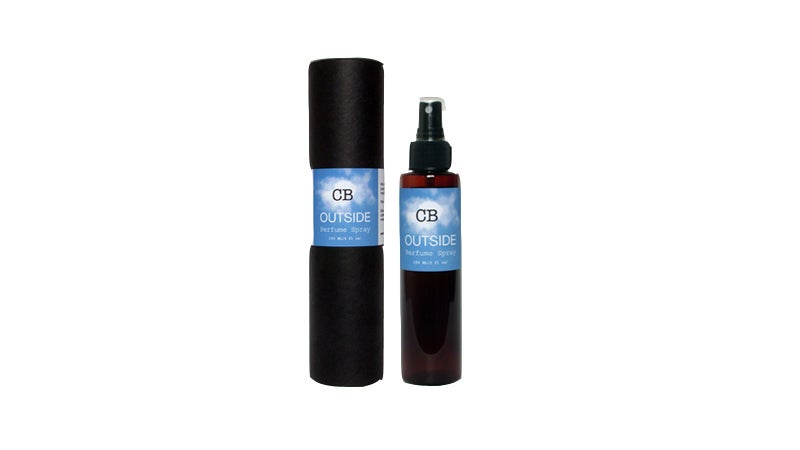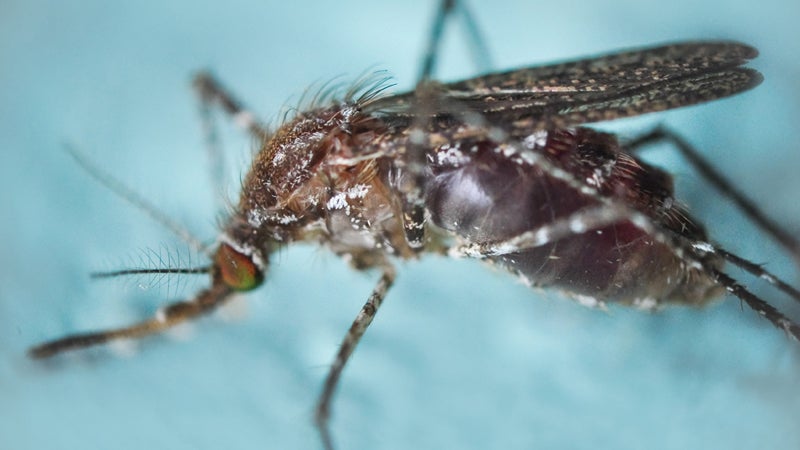While DEET remains the Centers for Disease Control’s repellent of choice for warding off mosquitoes and ticks, it’s not always the best option for outdoor adventurers.
It’s been known to eat through synthetic clothing and gear, it’s easy to OD kids and sensitive adults, and it’s harmful to fish and other aquatic life. So many companies are turning to less reactive alternatives—like picaridin, which won’t chew through clothing but is still somewhat toxic to humans, and IR3535, which is nontoxic but can irritate skin if over-applied.
Fortunately, for those who want to forego chemicals altogether, there are nature-made options that work almost as well. The Environmental Protection Agency approves three plant-oil repellents for covering the whole family, and research stands behind a few more for less-buggy situations.
Citronella
The reason this citrusy option is so ubiquitous? It’s safe for children, sensitive adults, and wildlife. Just keep the spray on hand—you’ll need to reapply at least every 60 minutes.
We Like:
Citronella makes up a whopping ten percent of the formula, which guarantees maximum lasting power. The slim bottle is easy to stick in a pocket for touch-ups. $8.99,
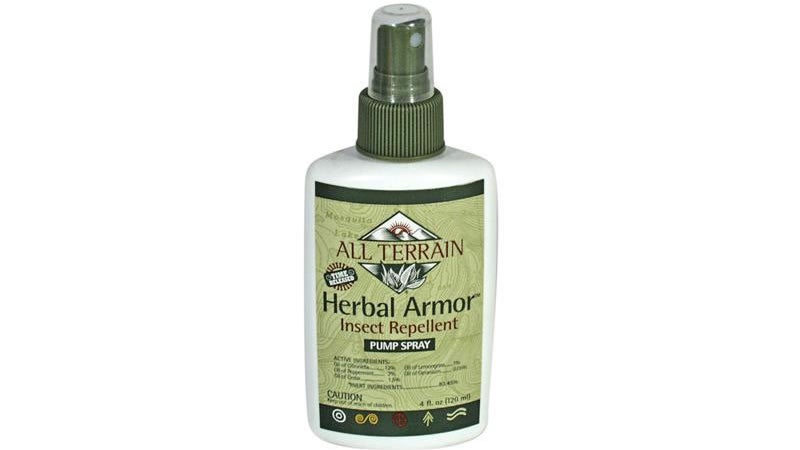
Catnip
Early research suggests that catnip, a member of the mint family, may work better than DEET when diffused in the air, where it can last up to 15 hours. It’s less effective when worn on skin or clothes, but its track record with felines still makes it a safe choice for protecting pets as well as humans.
We Like:
The catnip here is Canadian, which is 45 percent stronger than other varieties, paired with skin-soothing witch hazel and vitamin E. And yes, it’s four-legged friendly, too. $15.15,
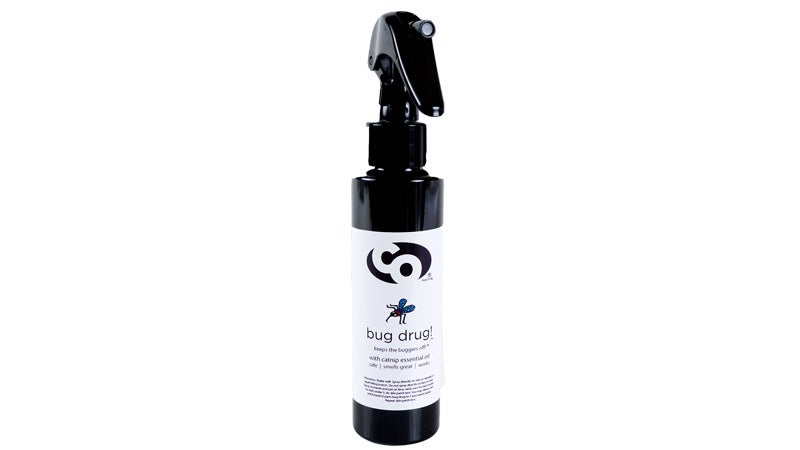
Oil of Lemon Eucalyptus
This specially processed oil is the only natural DEET alternative that’s also endorsed by the CDC, and it keeps mosquitoes and ticks at bay for up to six hours (though it’s not for kids under three). Just don’t confuse the repellent oil with the essential oil, which is manufactured differently and doesn’t contain enough of the bug-offending chemical (for you chemistry nerds, that’s p-menthane-3, 8-diol), to keep the biters away.
We Like:
This cooling spray delivers lemon eucalyptus that packs 65 percent of the repellent chemical. It also comes in a travel-friendly pen as well as a full-size bottle. From $3.99,
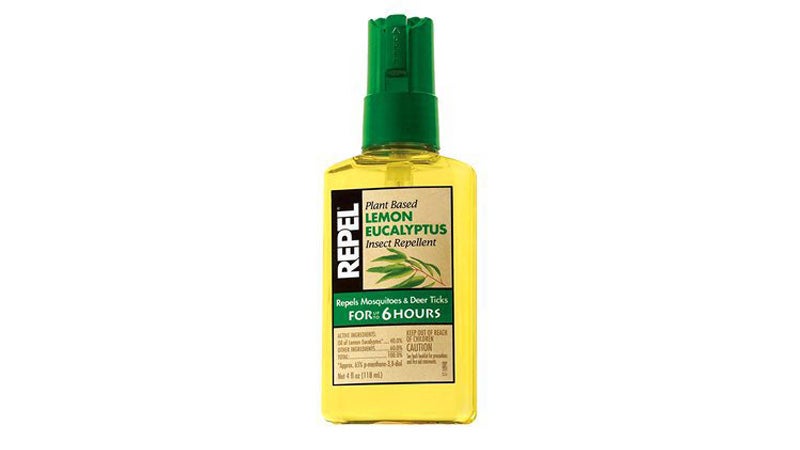
Runner Up: Geraniol
Found in geranium and rose flowers, geraniol is a solid second to DEET, according to some studies. One found that it reduced mosquito bites by up to 99 percent, versus citronella’s 40 to 57 percent. In another study, it held off bugs for a solid 94 minutes, while other natural selections fizzled after 20.
But before you start spraying away, there are reasons it didn’t make the EPA short list—mostly because it can cause skin irritation. Make sure to do a patch test before taking it on the trail. It can also have the unfortunate effect of attracting friendly interest from honeybees, since it’s similar to a nesting pheromone. You’re not likely to get stung, but obviously skip this one if you’re allergic.
We Like:
It’s blended with coconut and soybean oil, both of which have fatty acids that may help deter mosquitoes and also boost the repellent’s lasting power. $8.99,
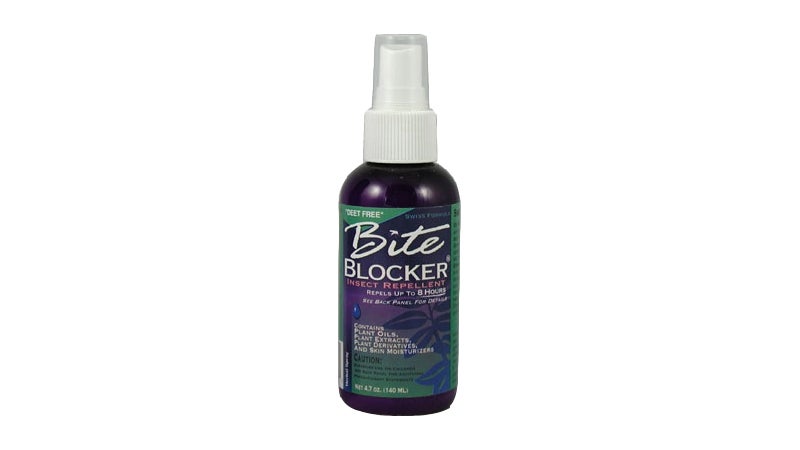
Honorable Mentions: Cedar, Patchouli, Peppermint, Thyme
Many essential oils contain the same or similar repellent chemicals as the all-stars above, just in lower concentrations that won’t deter aggressive biters—which is the main reason why the EPA and the CDC don’t give them the stamp of approval. There’s still plenty of research to stand behind some of them, though, especially for times when insects are few and a hard-hitting repellent is overkill. Look for cedar, patchouli, peppermint, and thyme: they’re the top performers in studies.
We Like:
Brooklyn perfumer Christopher Brosius blended cedar, geranium, oregano, and patchouli with lavender and bergamot to ward off flying insects and make you smell like a great cologne. It might not be potent enough for the backcountry, but you’ll be glad you wore it when drinks on the patio turn buggy. From $16,
